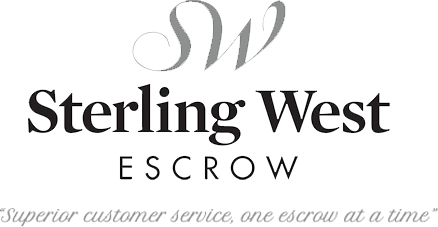Components of an Escrow Agreement | Base Rates
 Real estate transactions involve large sums of money and collateral property. They are subject to legislative statutes, local ordinances, case law and physical inspections. These deals usually also involve credit checks, employment verifications and asset evaluations. Needless to say, all parties involved, i.e. buyers, sellers, borrowers and lenders, must fulfill their respective contractual obligations before funds are disbursed and property is conveyed. Because of all these variables, another party is contracted to hold deposit and loan funds, releasing them only when agreed-upon duties are performed. This final player is known as the escrow agent, whose own performance is governed by the escrow agreement.
Real estate transactions involve large sums of money and collateral property. They are subject to legislative statutes, local ordinances, case law and physical inspections. These deals usually also involve credit checks, employment verifications and asset evaluations. Needless to say, all parties involved, i.e. buyers, sellers, borrowers and lenders, must fulfill their respective contractual obligations before funds are disbursed and property is conveyed. Because of all these variables, another party is contracted to hold deposit and loan funds, releasing them only when agreed-upon duties are performed. This final player is known as the escrow agent, whose own performance is governed by the escrow agreement.
What an Escrow Agreement Does
The escrow agreement will identify the relevant parties—including the escrow agent—along with date, time and location of settlement. It may dictate the conditions for the receipt, holding and release of monies; limit liability for the escrow agent; and specify legal recourse for the other parties if the agent is found in breach. However, depending on the state, this document does not bind the agent in terms of what to charge for escrow services. While various fees may be levied, the core of the escrow agent’s compensation is the base rate.
What Are Escrow Base Rates?
Virtually every escrow company charges a base rate. Derived as a fraction of the sales price, the base rate can vary. Moreover, the rate is paid by both buyer and seller. So, if the sales price on a home is $500,000, and the escrow company charges five dollars per thousand, then the agent receives $2,500 from the buyer and an additional $2,500 from the seller. Both parties pay the base rate because escrow serves both parties’ interests: the base rate covers the safe and timely stewardship of funds per the agreement. The agent can charge fees for other services but monies management is central to the agent’s role.
Why Charge Other Fees?
Some services provided by an escrow company are offered simply to consolidate settlement services. These include document preparation and transmission fees; a wire fee for funds to move from one bank account to another; courier fees and notary fees. Often, an escrow company that itemizes numerous fees of this sort does so to keep the base rate lower. Others prefer to fold in routine services when calculating the base rate.
Are Base Rates Regulated?
Federal law requires lenders to issue a Good Faith Estimate (GFE) at the time a borrower applies for a mortgage loan. True to its name, the GFE must come reasonably close to representing the actual costs of the loan—including settlement costs—in order to comply with the law. If the lender has a history with the escrow agent, the GFE will most often meet the allowable threshold. In some cases, however, the bank or finance company will discover that, upon receipt of the escrow agent’s invoice, it must re-disclose the fees with a new GFE, delaying the closing process. While this disclosure requirement does not put a cap on base rates, it does allow for competitive bidding in the marketplace.
Benefits of Escrow
Amid the excitement of finding and purchasing a new house, there are many things to keep track of, including expenses, appointments, and keeping up with your daily life. Having an independent escrow officer to help you through the process can help keep your busy life much more organized. The team at Sterling West Escrow works diligently to ensure that each of our clients feel they are receiving premier west coast escrow services, including support throughout the entire real estate transaction process. If you are looking for an independent escrow company in the Los Angeles area, we encourage you to contact Sterling West Escrow today. We are confident that you will be happy you did.
